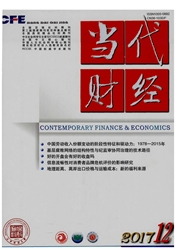

 中文摘要:
中文摘要:
以2010-2014年上市公司为研究对象,首次从社会嵌入视角考察在我国转型经济期内社会信任这一非正式制度对内部控制缺陷及其修复与财务风险两者关系的影响。研究表明,公司出现内部控制缺陷会显著增加企业财务风险,并且内部控制缺陷的修复会降低财务风险。进一步检验发现,高水平的社会信任可以显著降低内部控制缺陷引起的财务风险,并且相对于高信任水平的地区,在低社会信任水平的地区,内部控制缺陷的修复更能降低企业财务风险。在市场发育不充分的发展阶段,社会信任作为非正式制度发挥着重要作用,企业不仅要完善包括内部控制在内的正式制度治理机制,也要建立包括社会信任等非正式制度机制,共同提高公司的抗风险能力。
 英文摘要:
英文摘要:
Taking the listed companies during 2010-2014 as the research objects, this paper for the first time examines the influence of social trust, which is an informal system during the period of transition economy in China, on the relationship between the material weaknesses in internal control and their remediation and financial risks from the perspective of social embeddedness. The findings indicate that if the defects in internal control are found in the companies, they will be faced with more financial risks, while restoring these defects in internal control can reduce the financial risks. Further checks find out that high-level social trust can significantly reduce the financial risks resulted from the defects in internal control; compared to the regions with higher level of trust, the repairing of the defects in internal control in the regions with lower social trust can better reduce financial risks. During the development stage with insufficient market growth, social trust as an informal institution is playing an important role, the enterprises should not only improve their formal system governance mechanism, including the internal control, but also establish the informal system mechanism, including social trust, so as to improve their anti-risk capability.
 同期刊论文项目
同期刊论文项目
 同项目期刊论文
同项目期刊论文
 期刊信息
期刊信息
